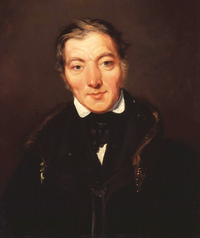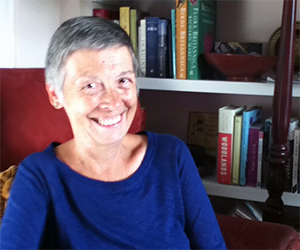Testimonies of (Aboriginal) Hunger
A while ago I asked my research assistant, Jinelle Piereder, to search the recent report of Canada’s Truth and Reconciliation Commission, “The Survivors Speak: A Report of the Truth and Reconciliation Commission of Canada.” (Library and Archives Canada Cataloguing in Publication 2015)
 I asked Jinelle to find testimonies about hunger in Canada’s now notorious residential schools, about which I have posted earlier blogs. See my blogs “Cultural Genocide of Canada’s Aboriginal People, June 16, 2015 and “Canada: Malnourishment of Aboriginal Children”, July 19, 2013. These were the schools in which Aboriginal children were imprisoned, abused, and starved from the 1870s to 1996 (when the last school closed) in order to “take the Indian out of the child” and convert them into (lower-class) white people.
I asked Jinelle to find testimonies about hunger in Canada’s now notorious residential schools, about which I have posted earlier blogs. See my blogs “Cultural Genocide of Canada’s Aboriginal People, June 16, 2015 and “Canada: Malnourishment of Aboriginal Children”, July 19, 2013. These were the schools in which Aboriginal children were imprisoned, abused, and starved from the 1870s to 1996 (when the last school closed) in order to “take the Indian out of the child” and convert them into (lower-class) white people. Below are the quotes Jinelle found: they speak for themselves. It’s shocking for me to read testimony from Canadian Aboriginals that resembles testimony I’ve been reading for the last few years about North Korea. I’ve left in the references that Jinelle included, in case you want to find the quotes yourself. The page numbers listed at the end of each quote are from the main report. However, each quote has its own statement number, location and date listed in the TRC report’s references (example below).
“Woodie Elias recalled being hungry all the time at the Anglican school in Aklavik in the Northwest Territories.
‘You didn’t get enough; hungry. So once in a while we go raid the cellar and you can’t call that stealing; that was our food. I got somebody, go in the kitchen and get the bread.'" (TRC, AVS, Woodie Elias, Statement to the Truth and Reconciliation Commission of Canada, Fort McPherson, Northwest Territories, 12 September 2012 Statement Number: 2011-0343, p71)
“Of the food at the Fort Alexander school, Faron Fontaine said that all he could recall was
‘kids starving. Kids going in the kitchen to steal food. Lucky thing I knew some people that worked in there with my grandfather, they used to steal me, sneak me some food all the time, send me an apple or sandwich or something. It’s pretty good to have connections in there I guess. As for those other kids, I don’t know how they survived. Maybe their stomach shrunk enough that whatever they ate was filling them up, I don’t know.’” (p71)
“Andrew Paul said that every night at the Roman Catholic school in Aklavik,
‘we cried to have something good to eat before we sleep. A lot of the times the food we had was rancid, full of maggots, stink. Sometimes we would sneak away from school to go visit our aunts or uncles just to have a piece of bannock. They stayed in tents not far from the school. And when it’s raining outside we could smell them frying doughnuts, homemade doughnuts, and those were the days when we ate good.’” (p71)
“Doris Young said that hunger was a constant presence at the Anglican schools she attended in Saskatchewan and Manitoba.
‘I was always hungry. And we stole food. I remember stealing bread. And they, the pies that, that I remember stealing were lined up on a counter, and, and they weren’t for us to eat, they were for the, for the staff.’” (p72)
“Ray Silver recalled that a small grocery store used to dump spoiled fruits and vegetables by a creek near the Alberni, British Columbia, school.
‘And us kids, we used to sneak from the school, we must have had to walk about a mile, sneak away from the school, sneak over the bridge, and go to that dump, and pick up apples, they were half rotten or something, and they threw out, they were no more good to sell, but us kids that were starving, we’d go there and pick that stuff up, fill up our shirts, and run back across the bridge, and go back to the school.’” (p72)
“The conflict over food turned to abuse when students could not keep their food down. Bernard Catcheway recalled that in the 1960s at the Pine Creek, Manitoba, school,
Source: TRC website ‘we had to eat all our food even though we didn’t like it. There was a lot of times there I seen other students that threw up and they were forced to eat their own, their own vomit.’” (p74)
“Ethel Johnson had vivid memories of watching her younger sister struggling to eat food that she was not used to eating at the Shubenacadie school.
‘She didn’t like it. And the nun was behind her saying, “Eat it.” They used to call her pussy when she was in school; blue eyes I guess. And she couldn’t eat it, and she started crying. And then she tried to make her eat it; and she couldn’t. And then she threw up, and then she put her face in there. And she couldn’t; when you’re crying you can’t eat anyway.’” (p74)
“Gladys Prince recalled how at the Sandy Bay, Manitoba, school, the
‘priests ate the apples, we ate the peelings. That is what they fed us. We never ate bread. They were stingy them, their own, their own baking.’” (p 77)






